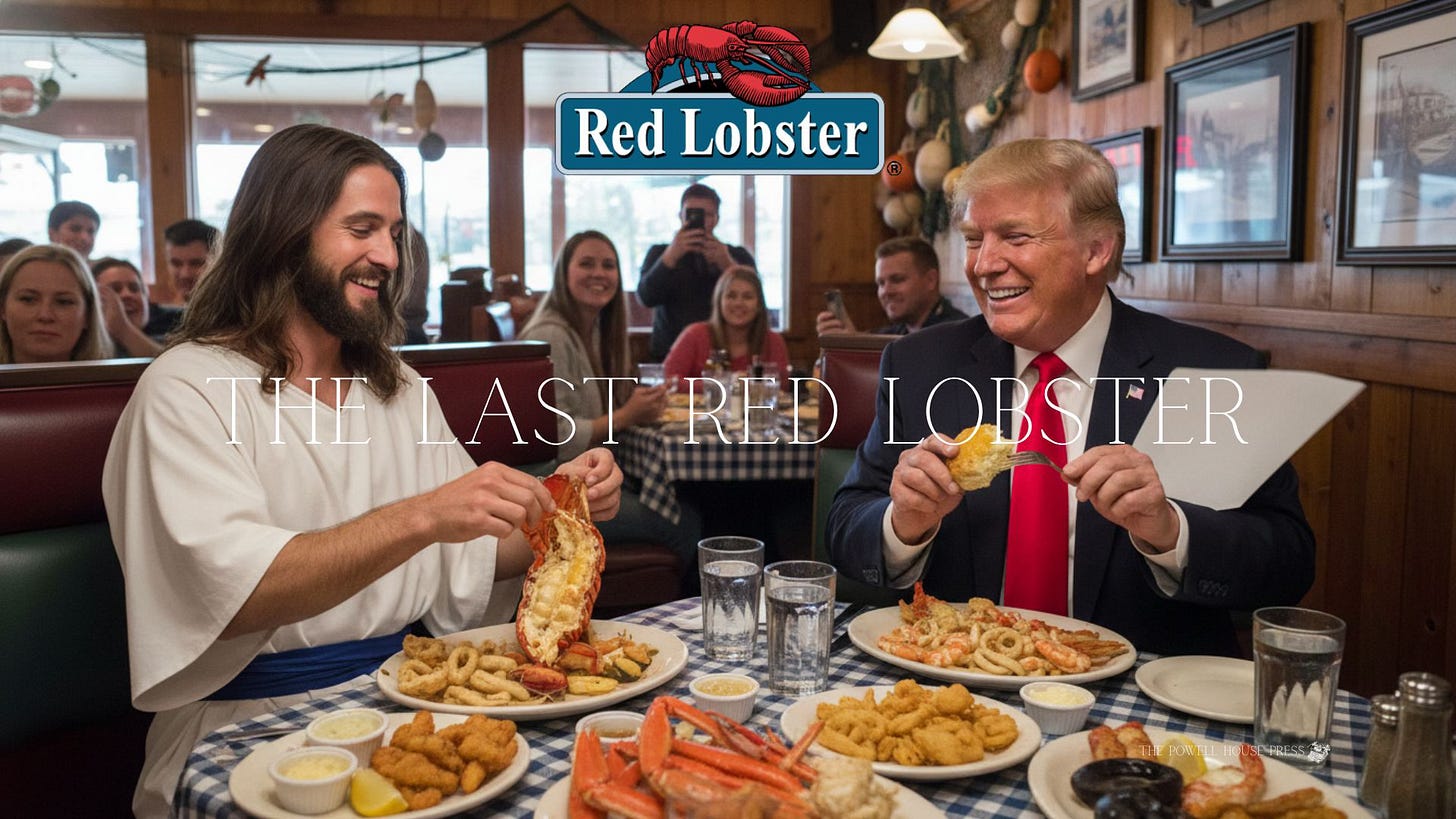The Last Supper: American Chains Serving Lies and a Lifetime of Poverty.
How corporate America ate the middle class and Trump wants to give them seconds.
One should never underestimate Donald Trump’s genius for selling Americans their own disappointments wrapped in gold lamé. His latest gift to America? A promise to restore the halcyon days when one breadwinner could actually win bread—is perhaps his most audacious fiction yet. It’s the policy equivalent of Trump University: overpriced, fake, and fundamentally impossible to deliver. But the real scandal isn’t Trump’s mendacity (what else is new?). It’s that the American Dream he’s peddling has already been devoured by corporate America deadly killers: corporate tax breaks and private equity. And I rediscovered this truth in the most unlikely of places: over cheddar bay biscuits at a Red Lobster in Allentown, Pennsylvania.
Yesterday I was hungry and was craving crab. I texted my sister and asked her if she wanted to have an impromptu Sunday late lunch/early dinner.
I was me who suggested Red Lobster, that monument to American chain dining, which I hadn’t been to in decades—back when Trum…



